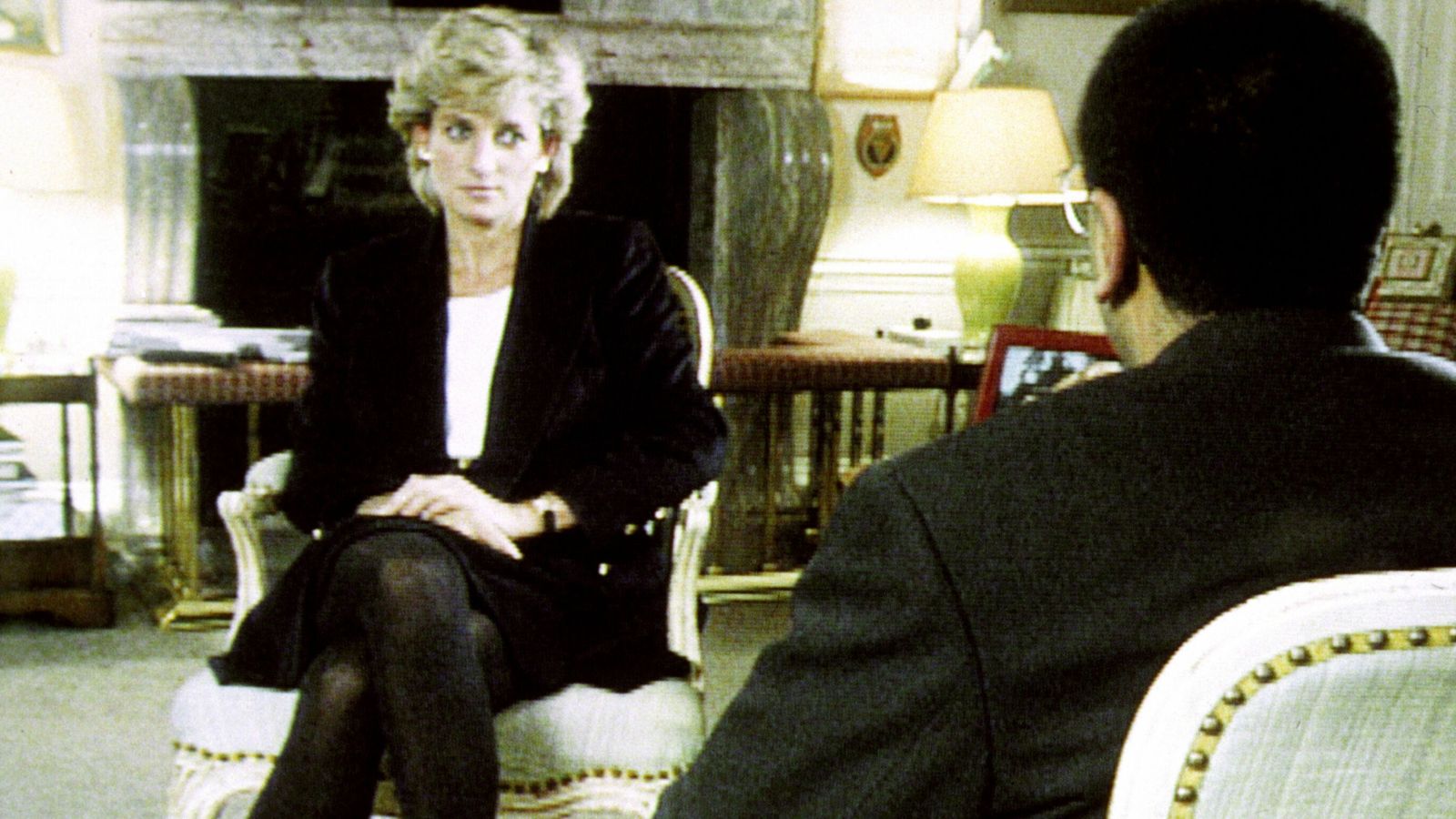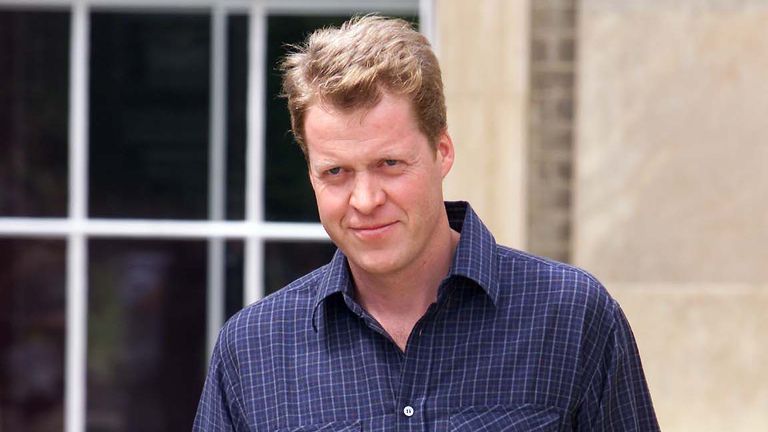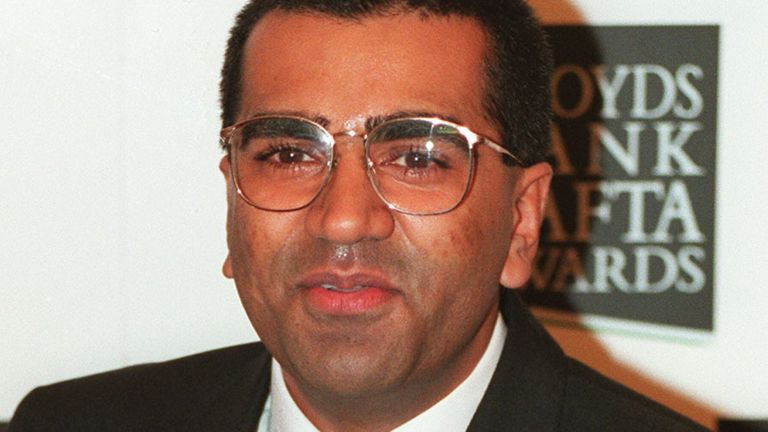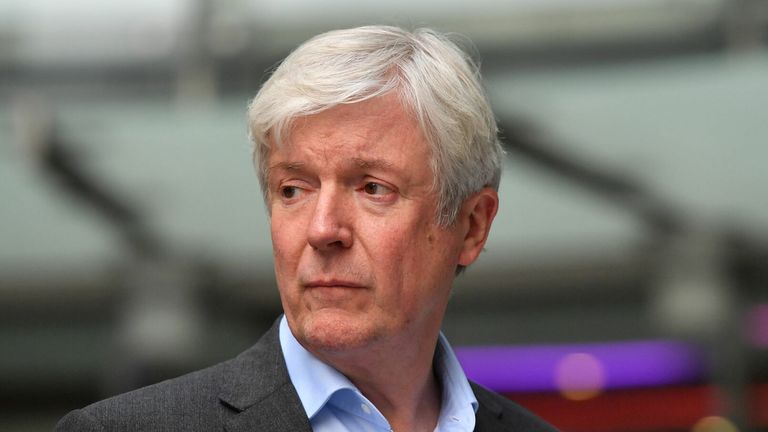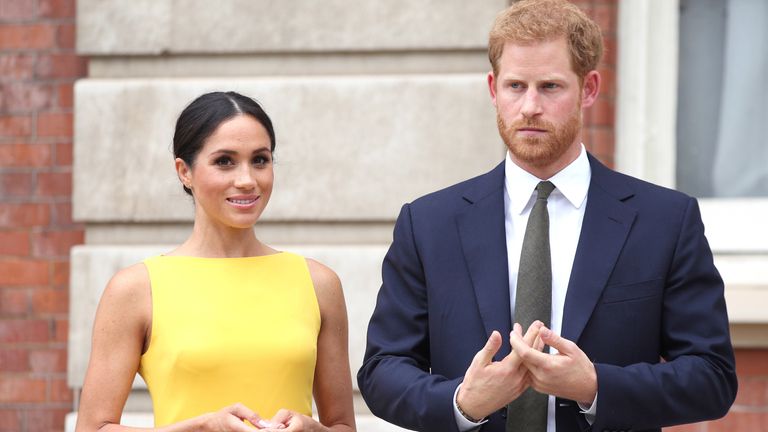Documents seen by Sky News suggest senior management at the BBC were more concerned about punishing whistleblowers than investigating why Martin Bashir had allegedly faked documents in the lead up to securing the 1995 Panorama interview with Princess Diana.
Within weeks, it is anticipated that Lord Dyson, who was tasked with investigating how the interview with Princess Diana was secured, will report back with his findings.
He was asked to lead the inquiry by the BBC following claims that Bashir may have used fake documents to convince the princess she was being spied on by the secret services.
Sky News has seen some of the internal BBC memos that will have formed part of the inquiry and highlight the kinds of questions Lord Dyson is likely to have been asking those involved within the BBC and those close to the princess.
The documents appear to show inconsistencies about how Martin Bashir met Princess Diana, who knew what about how he secured the scoop, and raise questions about whether there was a potential cover-up within the BBC to prevent the success of the interview from being overshadowed.
The papers show that Bashir was not officially disciplined when it emerged he had faked a bank statement, but there was a determination to reprimand “leakers” who had tipped off the press and “remove persistent troublemakers from the programme”.
The internal memos also highlight the level of self-congratulation that went on within the BBC following the interview, including a series of handwritten notes written by Tony Hall praising those involved.
Hall was the managing director of news and current affairs at the time and subsequently went on to become director general of the BBC, from 2013 until 2020.
The programme went on to win a BAFTA award for Bashir and was one of the most viewed programmes in the corporation’s history.
It caused a scandal when it aired, as Diana was highly critical of the royal institution, of Prince Charles and admitted to suffering from bulimia and depression and that “there were three of us in this marriage, so it was a bit crowded”.
The 67 pages of documents were released by the BBC under a freedom of information request last November around the 25th anniversary of when the interview was aired.
How did Martin Bashir meet Princess Diana?
Contrasting stories appear within the documents about how Martin Bashir met Princess Diana and was able to approach her about an interview.
A statement Tony Hall wrote to the board of governors reads: “At the beginning of 1995, Martin Bashir began work on a story about the Royal Family. It was suggested to him by well-placed sources that the activities of the Princess of Wales were being scrutinised – possibly even bugged.”
He adds: “Bashir decided that to move the story on he needed to get to the Princess of Wales, and that the best route for that might be through Earl Spencer. Eventually they met.”
He then adds: “Spencer introduced Martin to the Princess of Wales. She told him she thought she was being bugged and followed. Numerous conversations followed, leading to the interview.”
However, in minutes for a board of governors meeting from 25 April 1996, a paragraph reads: “Tony Hall said the Panorama interview had arisen in the course of a long-term investigation. Martin Bashir had met the Princess and there had been no intermediary.”
But Sky News has been told by sources close to the princess that without an introduction from Earl Spencer, Diana would never have met Bashir.
Was anything done to discipline Martin Bashir?
It is made clear in the documents that Tony Hall and others at Panorama were aware that Bashir had mocked up a bank statement using “information he had got from the highest level and made them into a graphic”.
A press office log also reveals that when a journalist asked if Bashir had been officially disciplined, they were told he had not.
Explaining what was done about it, Tony Hall writes to the board of governors: “I have talked to Martin at length about his reasons for compiling the graphic: He has none, other than he wasn’t thinking.
“I believe he is, even with his lapse, honest and an honourable man. He is contrite.”
He adds: “As I said, this had no impact on the investigation or the interview. It was unwise. I am writing to him giving him requesting that his action was incautious and unwise, and that he should be a great deal more careful in the future.”
However, later paragraphs appear to show a greater level of concern about “leakers” who alerted the press to the fake documents, and a commitment to reprimand those involved.
Hall writes: “The final point concerns the actions of those who leaked material to the press: We are taking steps to ensure that the graphic designer involved – Matthew Wiessler – will not work for the BBC again (when the current contract expires in the next few weeks). In addition, between now and the summer, work to deal with leakers and remove persistent troublemakers from the programme.”
Sky News understands that Matt Wiessler was never informed of any internal investigation and only found out about his apparent “black listing” when he was approached by a documentary maker last year.
Questions raised by journalists at the time
The internal papers show that a number of journalists raised questions with the BBC about how Bashir secured the interview and the techniques he used, both before it was aired and five months later when a whistleblower told the Mail on Sunday about the existence of a fake bank statement.
Mistakenly referring to a journalist from The Independent called Chris Blackhurst, a log from the press office from the 15 November 1995 reads: “Chris Packhurst asked if ‘Panorama’ was researching a programme on MI5 when it secured the interview with the Princess of Wales.
“He also asked if the programme had documents relating to MI5’s reported role in monitoring Diana’s movements, what her reaction was when the programme showed them to her, where had ‘Panorama’ got them and how did we know they were authentic? On the question of how the interview came about replied as previous log, adding that ‘Panorama’ does not have any documents on MI5 and HRH, so subsequent questions do not arise.”
At the top of the page there is a written note which reads: “Tony, where do you think this came from? John.”
In April 1996, further questions were raised after The Mail on Sunday published a story saying that Bashir had shown Princess Diana fake documents. Again Chris Blackhurst asked if the documents referred to in the Mail story had played any part in the Princess Diana interview. He was told they had not.
Speaking to Sky News, Chris Blackhurst explained how he received a tip-off from a source while he was working as an investigative journalist for The Independent.
He said: “I can’t think of another word for it. I think it was a definite cover up at the BBC. I made the first call to them, saying that he’d been looking into MI5 and he somehow… she’d been encouraged, even pressured, perhaps that’s too strong, but encouraged to give an interview on the back of this. And there was definitely a cover-up, and the BBC were constantly pushing me back.”
He added: “I think what was really appalling was that, okay, he got this interview, they got the interview – wow, fantastic- but try and put it in context. If the Sun, or the News of the World as was, if the Daily Mail had done the same thing, they had effectively shown fake documents to either Charles Spencer, or his sister, in order to secure an interview of that magnitude… imagine the fuss there would have been.”
But Mr Blackhurst also believes the BBC has questions to answer because of the long-term impact on the Royal Family.
“In a way, we then get to Harry and Meghan. In Harry and Meghan’s interview he [Harry] spent a lot of time talking about the effects of all the pressure on his mother, the paparazzi, and everything, he didn’t want it repeated,” Mr Blackhurst said. “So, everything goes back to that interview. And it was covered up. The BBC covered it up, they have a lot of questions to answer.”
We approached Martin Bashir and Lord Hall for comment and were told by the BBC: “The BBC is determined to get to the truth about the circumstances surrounding the Panorama interview in 1995 and has commissioned Lord Dyson to carry out a fully independent investigation.
“Martin Bashir is co-operating fully with the Lord Dyson investigation and won’t be making any public statements while the investigation is ongoing.”
When the inquiry was launched last November it was anticipated it would take around six months. It’s understood Lord Dyson, a former judge, is on target to complete his investigations within that time frame and report back to the BBC next month.
